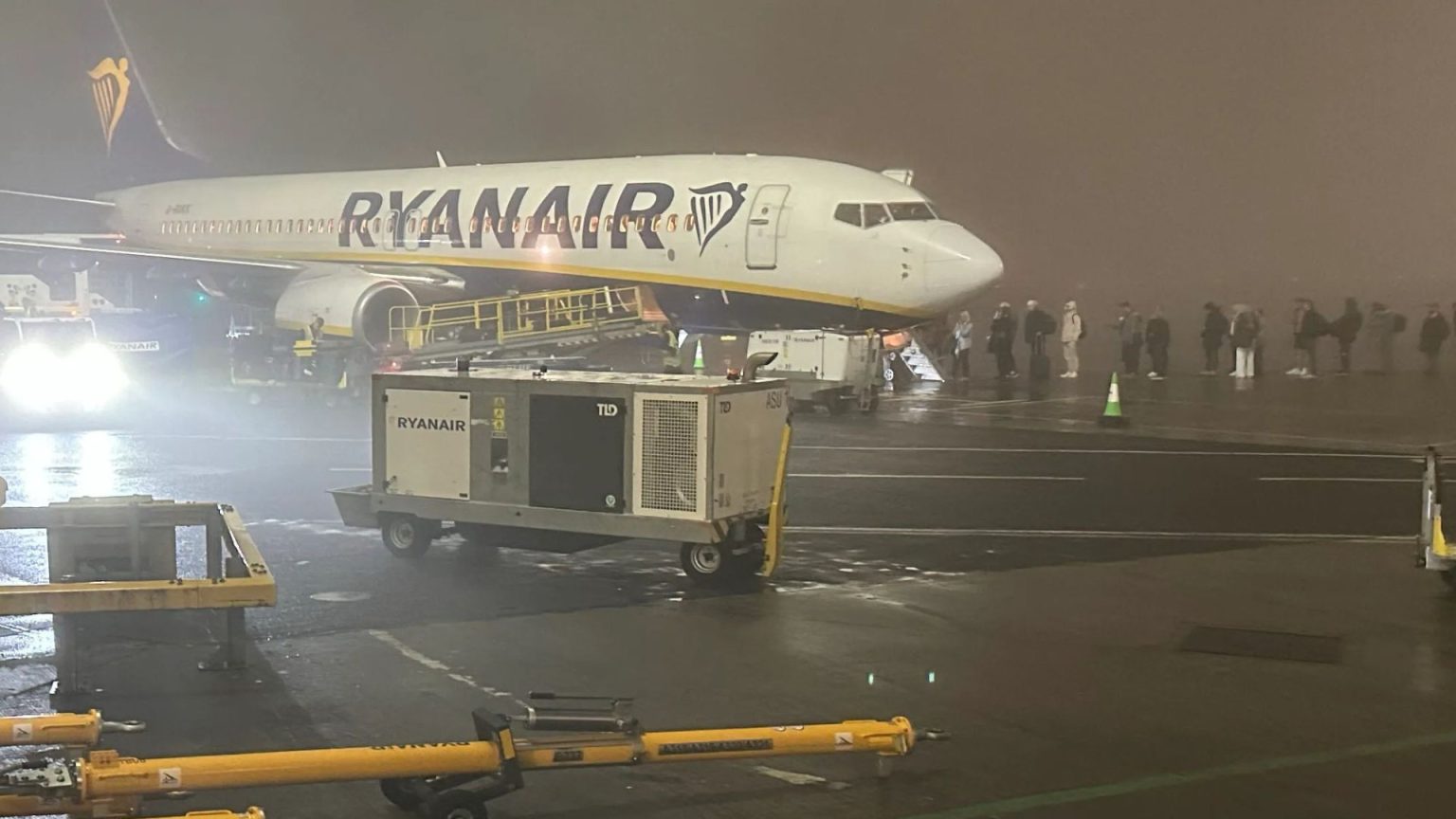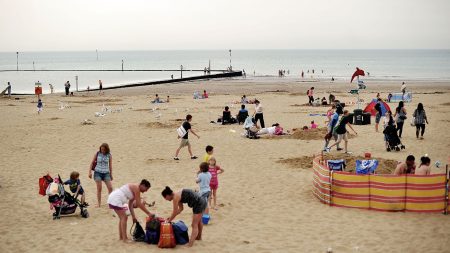Dense fog blanketing large swathes of the United Kingdom disrupted air travel significantly during the busy post-Christmas and pre-New Year period, causing hundreds of flight delays and dozens of cancellations. Gatwick and Manchester airports bore the brunt of the disruption, with Heathrow also experiencing some delays. The fog, which reduced visibility drastically, necessitated the implementation of temporary air traffic restrictions by NATS, the UK’s primary air traffic control provider, as a safety precaution. This measure, while crucial for ensuring safe operations, rippled through airport schedules, leaving countless travelers stranded or facing lengthy delays. NATS emphasized their commitment to working closely with airports and airlines to minimize the impact on passengers, advising travelers to check their flight status before heading to the airport. The disruption affected both outbound and inbound flights, with international routes experiencing knock-on effects as aircraft and crews were delayed.
Airlines issued warnings to passengers, urging them to monitor their flight status through official channels like airline apps. Ryanair, for instance, acknowledged the disruption and stressed that the adverse weather conditions were beyond their control, affecting all airlines operating to and from the UK. Passengers shared their experiences of delays and the resulting inconvenience, highlighting the frustration of extended waits and cramped conditions in airports as flights were grounded or delayed. One traveler recounted a seven-hour delay for a flight from Germany to the UK, describing the ordeal of being crammed into a boarding area while awaiting updates. The disruption caused families to postpone their holiday plans, with Christmas and New Year celebrations delayed due to the unexpected travel complications.
The fog-related flight disruptions coincided with a broader shift in weather patterns across the UK. A sharp drop in temperatures was forecast for New Year’s Eve, with some areas expecting temperatures to plummet to -2°C. This prompted warnings for partygoers to wrap up warm as they celebrated the arrival of the new year. Beyond the cold snap, the Met Office issued a yellow weather warning for heavy rain across Scotland, effective from midnight on New Year’s Eve. The warning highlighted the potential for significant disruption, including power outages, flooding, and delays to public transport. Motorists were also cautioned about challenging driving conditions and the possibility of road closures.
The heavy rainfall, combined with the earlier fog, presented a complex weather scenario impacting travel and daily life. The Met Office emphasized the potential risks associated with deep or fast-flowing floodwater, urging caution and preparedness. Temperatures across the UK were predicted to vary, with the coldest conditions expected in northern Scotland, while other areas, such as the north of England and the Midlands, were forecast to hover around 4°C. The combination of fog, heavy rain, and freezing temperatures created a challenging environment for travel and outdoor activities, prompting authorities to issue warnings and advise caution.
The widespread disruption underscored the impact of adverse weather conditions on air travel, particularly during peak seasons. The implementation of air traffic restrictions, while essential for safety, highlighted the delicate balance between maintaining operational efficiency and ensuring passenger safety. The experience of delayed and stranded passengers emphasized the importance of clear communication and proactive measures by airlines and airports to mitigate the impact of weather-related disruptions. The combination of fog, rain, and plummeting temperatures served as a reminder of the unpredictable nature of weather and its potential to disrupt travel plans.
The events surrounding the fog-induced flight delays and cancellations, combined with the subsequent weather warnings for rain and cold temperatures, illustrated the vulnerability of transportation systems to adverse weather conditions. The disruption experienced by passengers highlighted the need for robust contingency plans and effective communication strategies to minimize the impact on travelers. The incident also emphasized the importance of heeding weather warnings and taking necessary precautions to ensure personal safety during periods of inclement weather. The experience served as a valuable lesson for both travelers and transportation providers on the importance of preparedness and adaptability in the face of unpredictable weather patterns.











